Last Updated on August 5, 2021
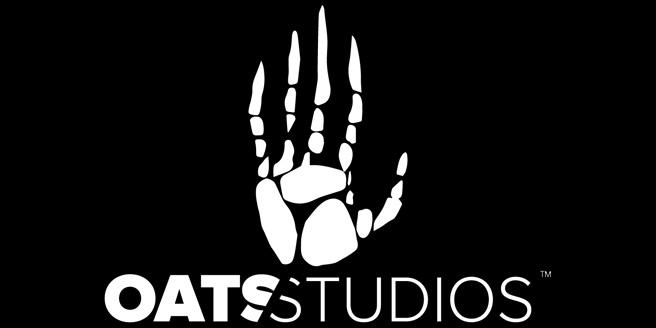
Director Neill Blomkamp has released the first volume of his experimental new venture Oats Studios with "Rakka" which stars Sigourney Weaver in an alien invasion saga with some intriguing concepts and visual punch that's sure to appeal to fans of the filmmaker, if not the sci-fi genre itself. In addition to "Rakka" I had a good chat with Blomkamp about the idea behind Oats Studios, his goals with the concept, exploring other franchises and IPs, as well as some talk of the would-be ALIENS sequel and much, much more. Check out the full episode of "Rakka" and the full interview with Blomkamp below!
Q: So, I watched RAKKA twice and loved it…
BLOMKAMP: That’s one of four pieces that are that scale. Each one is different and they kind of hopefully paint enough of a picture of that world and the audience is like, ‘I like this or I don’t like this, I want more of this, that kind of thing.’
Q: How did the idea of OATS Studio come about? How was this born?
BLOMKAMP: Well, it was like, I guess there’s two components two it. For a decade I’ve kind of been aware of the fact that I really envy musicians and authors that have the ability to do their artwork at a very low cost amount. They can put out an album and they just need a guitar and a microphone. And sculptors have all of these pieces of sculpture lying around their studio and it’s the same with painters. And it’s like films put you in this place where you have an immense amount of resources that have to be raised in order to go off into a vacuum for two and three years and make a film and then come out of it.
So, there was this thing happening where I felt like the ultimate form of creativity for me personally is theatrical feature films. That’s the space that I want to be in. If there’s an end goal to all forms of creativity in my mind, to me, it’s that. But, I feel like there are other components to getting there that can be almost like my version of my own album, y’know, that has like eight tracks on it that can inform what those bigger, massive time investments are.
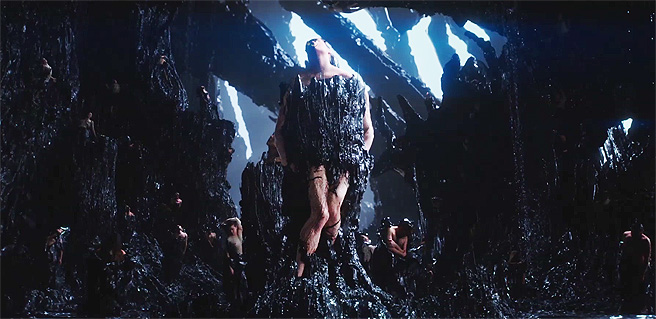
That was a separate thought that I’ve had for like a decade. Where it was like, ‘I wonder if there’s an economic model where you can just be allowed to be endlessly creative and just play around.’ And then, on a more tangible, executable level, at the end of CHAPPIE, when I was making it, I felt like, I was like, ‘Okay, I need to try and do this actually’ and figure out a way to do this so that I can at least attempt to get this other fifty percent of creativity happening alongside features.
And, so I kind of came up with this idea and any version of this I ran just seemed to be a situation of burning money where the resources would just be burnt up and the films would exist and that would be that. So, I was like how do I make something that could potentially be self-sustaining? How would that work? And it felt like if I just made a bunch of short films that were examples of bigger features that I wanted to make and putting them on iTunes where the audience was forced to pay felt kind of weird and it also felt like the audience would reject it because they’re not used to that format. And, I also felt like there was no way to get them all of the other material that might be interesting; as simple as behind the scenes stuff or concept art that we used to create the pieces or anything like that.
So, I had this random thought; STEAM, because of the way that they have workshops online and a lot of users can create content and there’s a lot of interaction and people on STEAM understanding the idea of early releases of stuff or these kind of incomplete vignettes of what games can be and I thought that venue could be an interesting place to put it. Despite the fact that film and video is extremely sort of brushed aside on STEAM; I’m aware of that, I’m aware of the fact that it’s all about games.
So when I mentally decided that that would be interesting, we just went down the road of like, ‘Okay, the goal is let’s make a bunch of content that is Neill’s weird album of ideas’. And, if there’s anything in these shorts that look like bigger films that people want to see, I will gladly make them. So, let’s build a studio that can do that and let’s build an infrastructure where the audience isn’t forced to pay, everything is free, but they have the ability to pay. So, if they feel like there’s something interesting in what we’re doing and they want OATS Volume 2 or Volume 3 or Volume 4 or even potentially features, how would that work? Can they pay us? And then we just spent two years building all that up.
I think a big part of it for me was the idea of having everything under one roof where you have this – almost like Pixar, in a way, but not digital. It all just happens under one roof from designing and building costumes to production design to writing of the scripts to shooting to visual effects to editing – everything. And, two years down the line now we have that, which is really cool. I can walk around in here and it’s just like, a very creative, insane studio that has a lot of potential. The issue is gonna be like the next few months where the audience either gets behind it or they don’t.
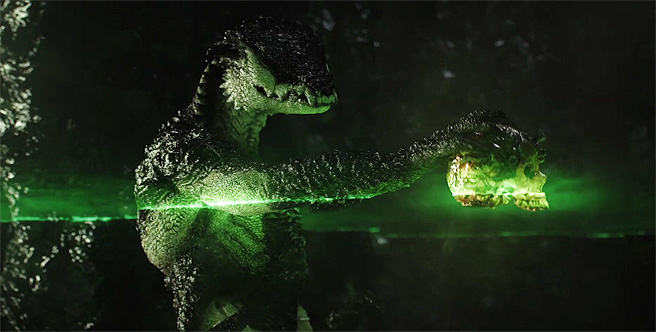
Q: What is the end-state goal for Oats Studios?
BLOMKAMP: I think that if we ended up doing what I want to do there isn’t really something I can point to that’s like it at the moment. What it would be is that it’s able to and funded to make entire feature films from beginning to end. If you look at RAKKA now that’s 20 minutes – if you scaled that up and wrote a 120-page screenplay – the quality of the production within it would be easy to scale it up. Because we made four it means that we made 80 minutes of content. It’s not difficult for us to execute 120 minutes of content. That isn’t hard. What is much more difficult is creating some kind of infrastructure where the audience has the ability to fuel us and fund us to do that; that is like way more difficult. But, if they do do that, if we can raise enough capital directly from the audience because they’re into we’re making then at the scale we’re at now we can make feature films. So, my absolute very crystal clear goal is to make features based on the insanity of the smaller kind of album of the volumes that we release of just continues different ideas. All of which are fueled by the audience.
And, if that model doesn’t work then there’s a model where you finance the films normally and use some of the proceeds that come back from the film to keep the studio alive at the volume one and two and three level, as opposed to the feature film level. But, that’s a fallback, I don’t really want to do that.
Q: How many Volumes of OATS are there so far?
BLOMKAMP: We’ve only made one. There’s four films that are the size of RAKKA in Volume 1 and then there’s a bunch of other weird stuff, like these strange comedy vignettes and just weird pierces that are interspersed in amongst there that are 2-3 minutes long. So, Volume 1 would be from when this article comes out [June 14th] until July 14th. I’ll just put everything online over the space of that month. At the end of that would be the end of Volume 1, would be the end of everything we’ve made so far and we’d have to figure out what the next thing is.
Q: Are a lot of these going to be open-ended, like the way RAKKA ends? Is that the last we see of RAKKA for now?
BLOMKAMP: For now, yes. For now, it’s like four bigger pieces that explain as much as RAKKA explains and RAKKA is one of them.
Q: Damnit! I want to see more of RAKKA!
BLOMKAMP: Yeah, if you want to see more of RAKKA, which I hope the audience does, it’s free, you can watch it, but if you want to see more of it, then give us some money or buy the film on Steam, get all the DLC stuff or watch it for free on Steam if you don’t like it. But, that’s the way to see more.
Q: You left me hangin’ man! I was disappointed, ‘cause I wanted to see the rest. But that’s good-
BLOMKAMP: It’s good, but it’s also maybe potentially bad at the same time. The thing that drove us to just release everything for free, hoping that people would pay for stuff if they liked it, was the idea that it does just end. It’s not like an HBO 60-minute television piece, it’s not a feature film, it’s not a 30-minute television network piece. It’s just weird. It’s not even a film, it’s like here is a snapshot of a potential world that I am very interested in as a director; do you like it? Every time I made one of these pieces, I always heard that hilarious voice and video from STARSHIP TROOPERS that’s like “Would you like to know More?” I almost wanted to put that at the end of the pieces! If you do, go here and help fuel the next chunk of stuff.
Q: Dude, you would be perfectly suited for a proper STARSHIP TROOPERS sequel. You would kill a STARSHIP TROOPERS movie.
BLOMKAMP: Yeah, STARSHIP TROOPERS is pretty awesome. I definitely love that film. That film came out just before I moved to Canada from South Africa. I remember it because it was part of that weird move. It was sort of emblazoned in my head. I have a fond recollection of that film.
Q: You have Sigourney Weaver with an alien invasion theme in RAKKA and I started to wonder if there was an influence carried over from the ALIENS 5 sequel you were planning that fell through. Any truth to that?
BLOMKAMP: No, not at all. Obviously Fox owns the screenplays for ALIEN 5. It’s their property. I have no ability to do anything with those screenplays. If at any point Fox released them- or the audience was able to see the stuff that went on there – it is extremely different from what RAKKA is. Since the film never got made and it’s Fox’s material I can’t really talk about what was in that film, but it’s definitely nothing like RAKKA. If you think ALIENS and you think ALIEN, the screenplay was in line with that. RAKKA is more about the resulting effects of an occupying force coming to Earth. It’s thematically a very different piece.
Q: And the aliens in RAKKA seem more intelligent and genuinely evil…
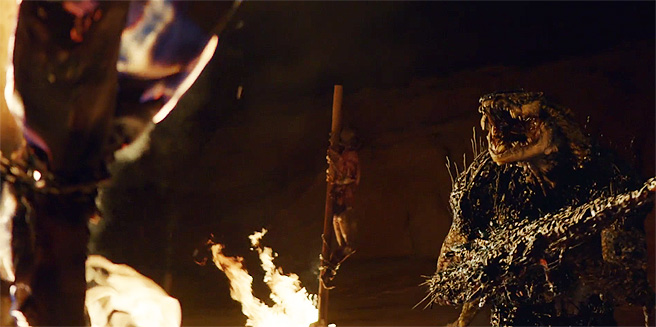
BLOMKAMP: Yeah, I mean, a huge component of the reason to create Oats and kind of the insanity and freedom about it is that discussions with people about things like ideas being too complex or too far-fetched or whatever, we don’t really have to get into those. As long as we watch it in the company and we’re like ‘yeah, that feels cool.’ That’s all that really matters. So, what I’m getting at is where some of the pre-written or pre-decided story of RAKKA goes becomes incredibly complex and does go down some roads of science fiction that you don’t always see in today’s Hollywood, I think, in terms of level of complexity in terms of how much it’s asking of the audience. The film at the moment isn’t, because it’s only 20 minutes.
But that invading force, which is called the Kloom, them and their structure and the different species within them and why they’re on Earth, a lot of those questions are pretty scientifically interesting and pretty broad and big and have a lot of philosophical ramifications. And there’s the species that you see at the end of the first third of the film –
Q: Right, the angel-like creature-
BLOMKAMP: Exactly. That’s a different species that’s non-physical. That consciousness is just tethered to a bunch of those metal particles. So, that species is what the Kloom aliens look up to and kind of revere, like a God. And that relationship between that non-physical intellect and the Kloom is interesting. And the technological superiority of the Kloom, but the fact that they fall victim so severely to the Reptilian rna/dna base primal way of functioning is also a super interesting dichotomy. It can go down those roads if the audience fuels it, but the point is it’s built on a backbone of I think relatively interesting sci-fi.
Q: It felt like a really well-polished proof of concept film as it shows the possibility
BLOMKAMP: The whole endeavor to me is very creative. Generally, walking around day-to-day I feel stoked. I feel very creatively rewarded by the stuff we’re working on and the company’s really creative and the ability to kind of put these ideas down and get them out of my head is pretty awesome. And then, also, you can sort of turn on a dime and you can come up with stuff and you can shift and change things within the company, where like, I don’t need to have a hundred discussions with people; you can just do it.
If we potentially make Volume 2, I just came up with a character the other day that was based on one of the crew members that we worked with in Thailand that I want to make a whole series out of this one guy. It’s just really cool. It feels very satisfying to be able to do that. If you put several months of work into that idea, if the audience goes for it, at some point then you can commit to one or two years to make that into something that really has a lot of weight to it and is a proper viewing experience that you sit down for two hours.
A lot of ideas of for Volume 2 are very different from Volume 1. They’re other expressions of cool stuff and they all kind of belong in the same kind of sci-fi/horror/fantasy/insanity camp; somewhere in that spectrum. The sad thing for me would be like if we didn’t get them all out, because the system didn’t work and the audience didn’t really dig it, which is completely possible. I mean, our business model at this point is to burn a stack of money [laughs]
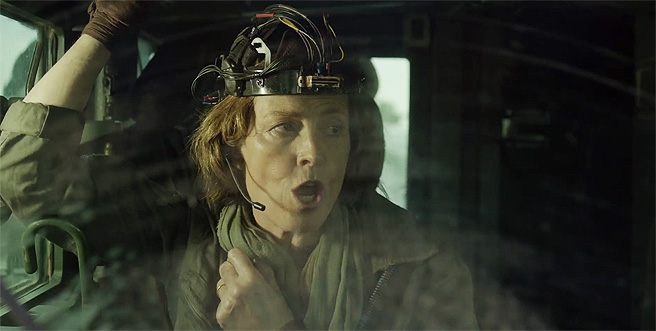
Q: You’ve been attached to HALO, ALIEN 5 and other franchises, but you’ve kind of just gone off and done your own thing. Are you burnt out on franchise stuff at this point?
BLOMKAMP: I would never say no, entirely. ALIEN was unfortunate and HALO was unfortunate, but I was really lucky with HALO, because Peter Jackson and Fran really helped me out of that in a cool way and they kind of let DISTRICT 9 happen, which was really good. I feel like there’s a lot of very interesting franchises that exist that are really compelling that I’d like to be a part of, but for whatever reason the way that it’s gone down with me previously there’s been politics that have killed it both times I’ve attempted. So, I’m open to it, but I don’t know if I have faith in it actually happening.
Q: I would see a Neill Blomkamp STAR WARS movie in a second, man…
BLOMKAMP: I don’t know if everyone making STAR WARS wants my version, though.
Q: The comic book genre is huge now and there’s a lot of untapped sci-fi books from publishers like IMAGE and I’m wondering if you’ve ever considered something like that…
BLOMKAMP: You know, the thing with Oats that I kind of really like is that Oats can become a venue for artists that I love where we can kind of “film-ize” some of their ideas if they’re willing to get onboard.
An example would be, and we don’t have deals in place with any of these people, but Dan Luvisi with L.M.S. (Last Man Standing) is a character I really love and I spoke to Dan about potentially being part of Oats if he’s willing and, y’know, we haven’t done that, but it’s totally his idea and his cool idea. And then if you look at artists like Simon Stalenhag, who is amazing and I love his stuff. Those guys both have the ability to get their stuff turned into traditional Hollywood films and that’s a road they can go down.
But, there’s also something interesting about taking one of Stalenhag’s images and turning it into a 10 or 20-minute vignette that kind of explains what he’s going for in this very interesting and unique tone. This is a venue that can potentially do that. It can realize these amazing pieces of art that exist online but don’t really have a home yet on film, unless they become big Hollywood feature films and maybe some of that magic is lost. We didn’t make deals with those guys, we just approached them because I love their stuff. Going down the line, I would love to have creative people that are just making amazing stuff and giving everybody a place that isn’t exactly the normal stuff, but it’s satisfying to watch. We’ll see if the audience wants it or not.
Q: It kind of reminds me of Robert Rodriguez’s Troublemaker Studios in Austin…

BLOMKAMP: I don’t know that much about Troublemaker, but in terms of the entire project the goal is for the audience to feel like they have the ability to either get behind us or not. If they feel like there isn’t value in what we’re doing then we have to go down a traditional road. If they feel like there is value and they fuel our ability to keep going. If it can grow the difference is that we are a hundred percent in control of all of the stuff we’re making and how we want the audience to view it. And I think that that is the core key difference where the amount of creativity and avenues you can go down explodes if you do that, because you can take a character out of one piece and if an audience likes that one character, but don’t like the overall piece you can just sort of excise them and make their own world.
A lot of that sounds relatively obvious and easy, but the problem is when you have normal politics involved in the way that films happen it’s incredibly difficult to make that happen. It’s incredibly difficult to do that sort of thing. If the format works then it kind of offers maximum options and creativity at all times and in order for that to happen you can’t make normal Hollywood deals. You have to be entirely independent. And to be entirely independent the audience has to fuel us directly. But, y’know, who knows? We’ll see.
Q: I look forward to the response. For me, I’m all in. I wish you all the best with it. I think it’s fresh and different and can’t wait to see more.
BLOMKAMP: Thank you so much, it’s a real help for us. I can’t say thanks enough.
You can check out Oats Studios and help fund future volumes at Steam HERE or watch them on You Tube HERE.



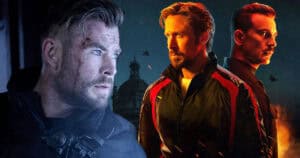




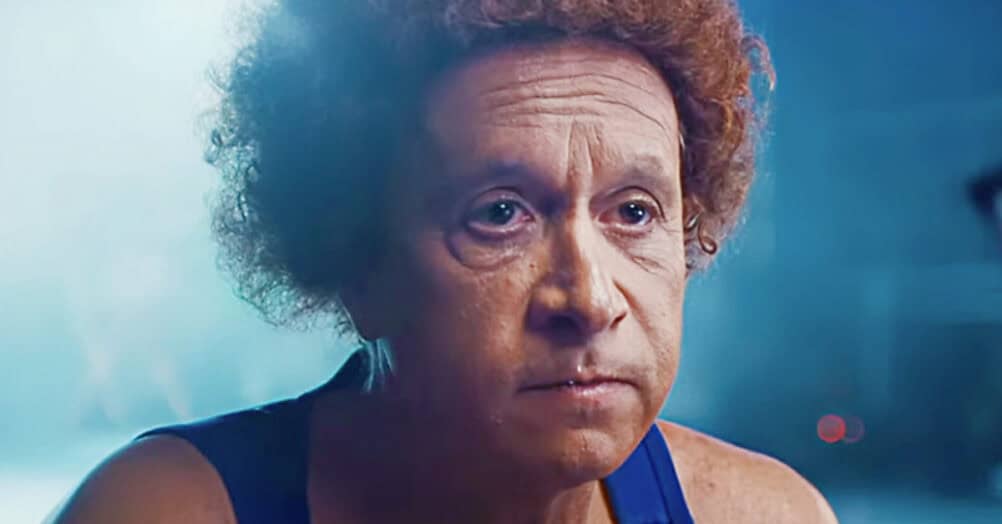
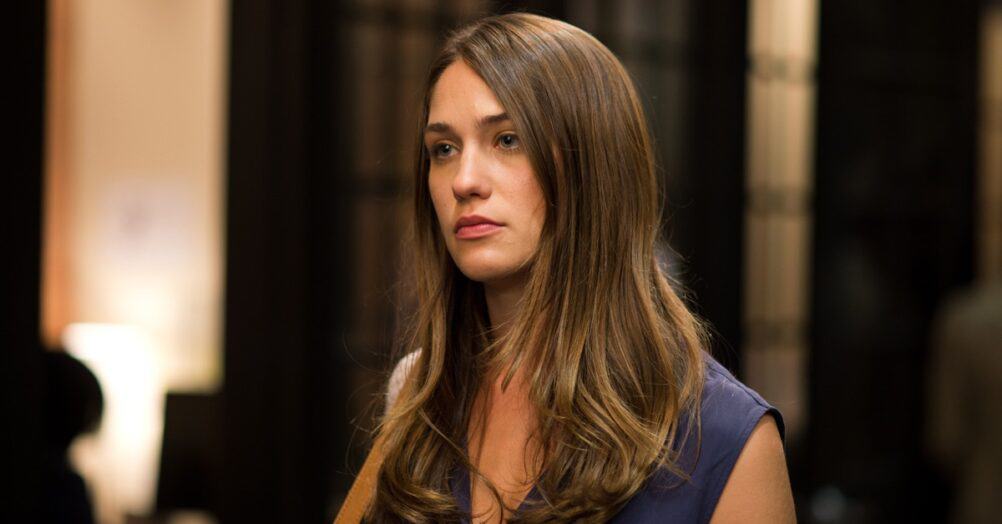
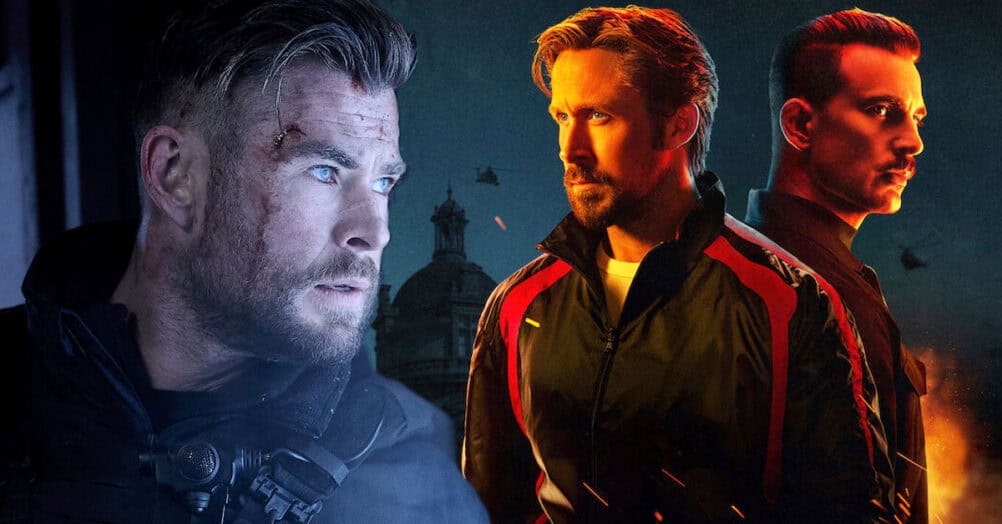
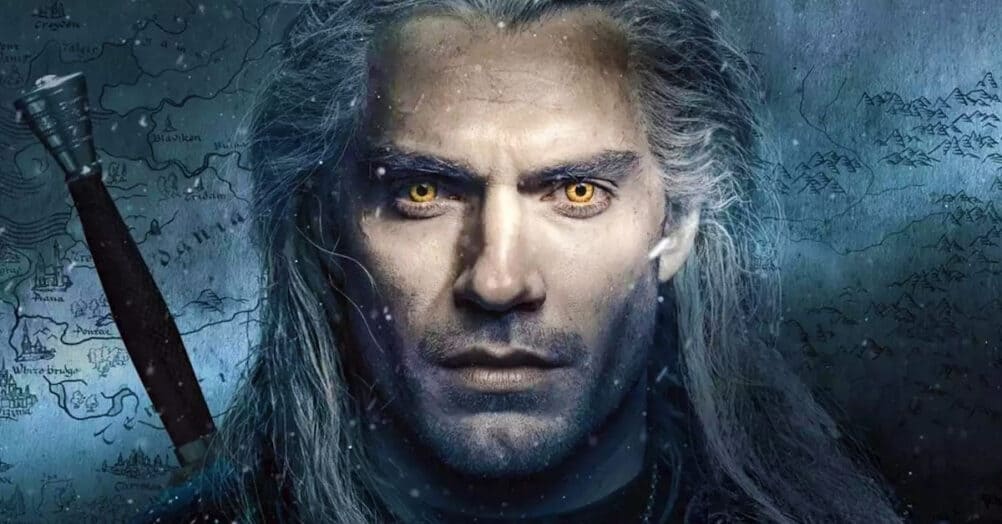
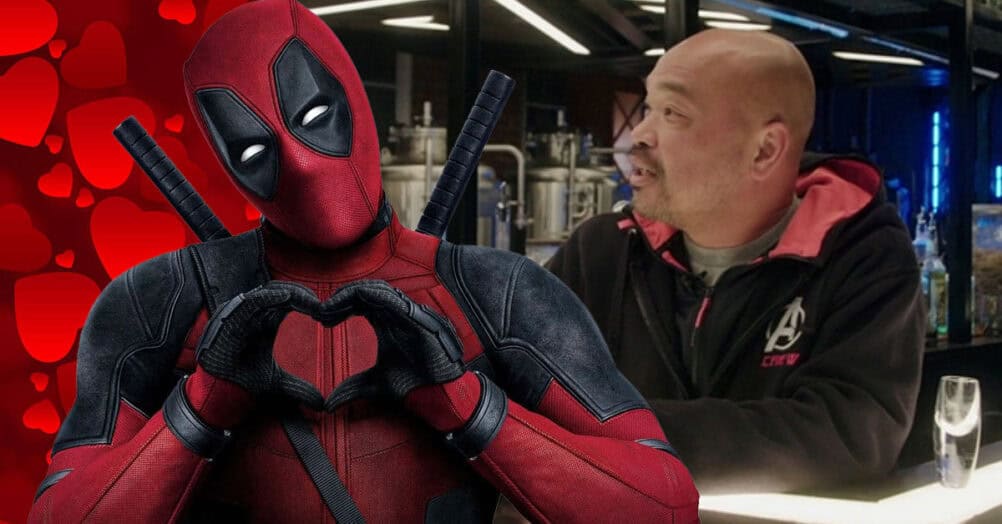
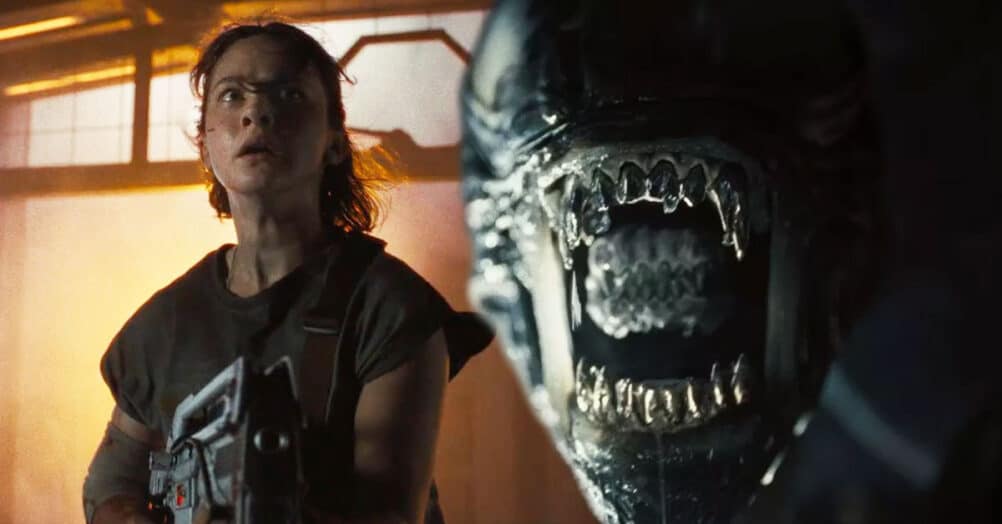
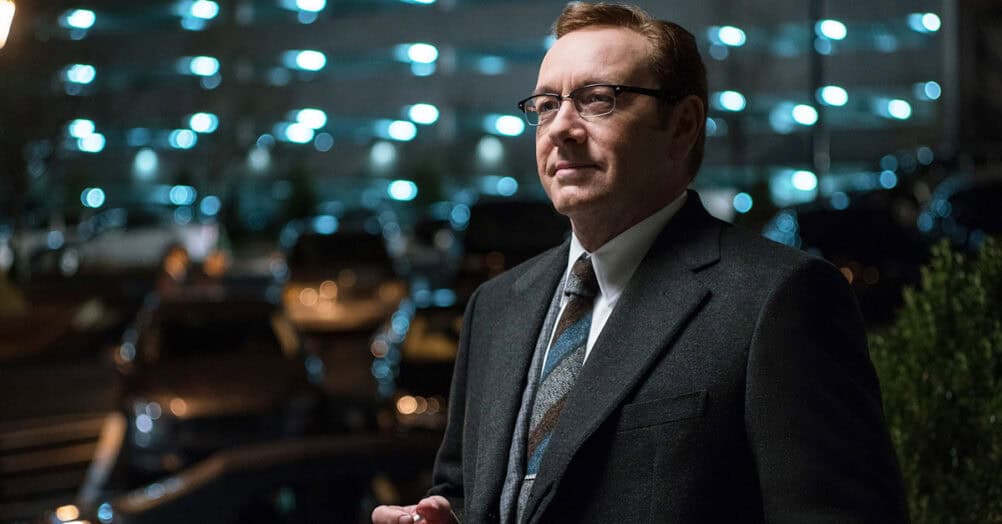
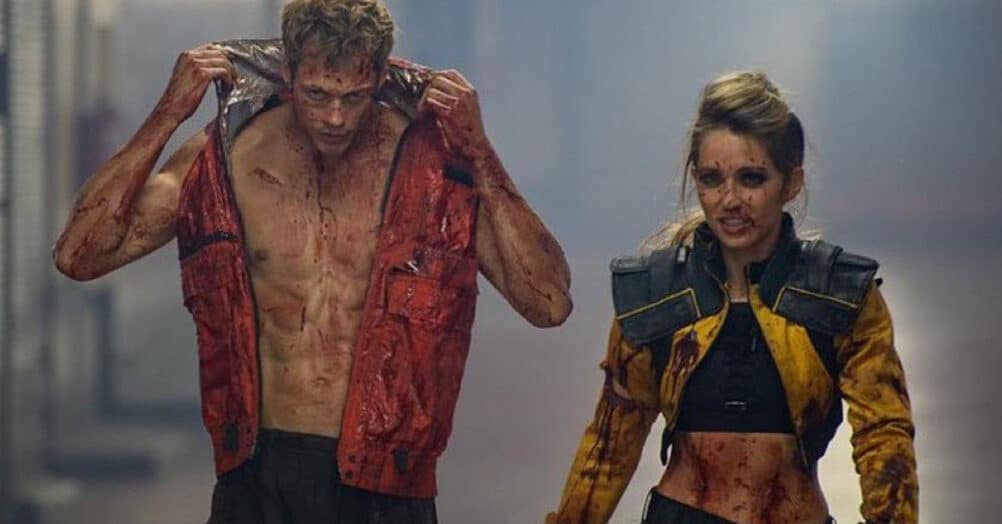

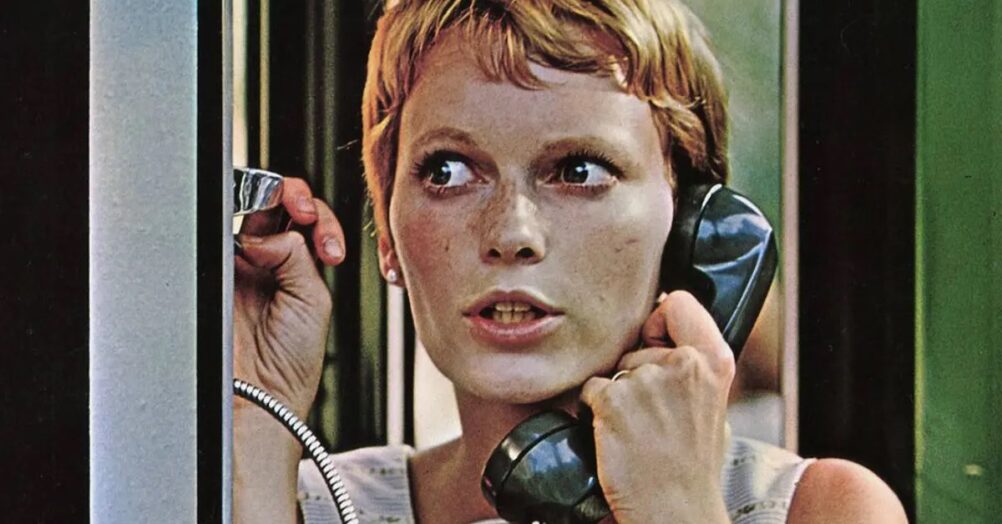
Follow the JOBLO MOVIE NETWORK
Follow us on YOUTUBE
Follow ARROW IN THE HEAD
Follow AITH on YOUTUBE